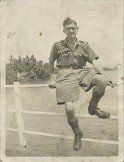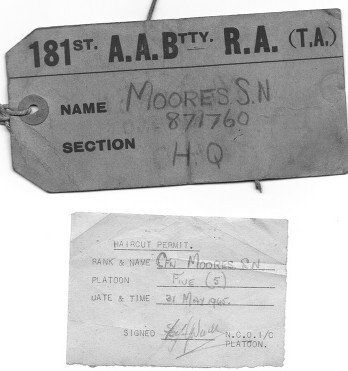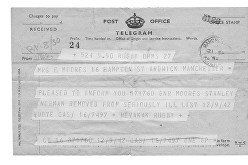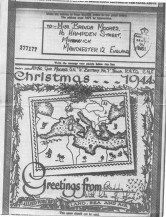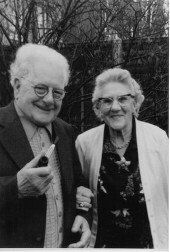This is a page for great unknowns- the ordinary folk whose stories are never heard. h birthday Schools ... Magna Carta Peterloo Stockport & Cheshire Great Unknowns Of interest Guestbook Terms conditions disclaimers
STANLEY NORMAN MOORES WORLD WAR 2
I am hugely grateful to Sue Moores of Xaverian College, Manchester for the loan of these artefacts. It was a huge privilege and an honour to handle them. Sue found this box of World War 2 artefacts when she was clearing her parents home.
Stanley was a mechanic in the 65th HAA Regt RA and 181st AAB RA.
Every aspect of his military life had been kept in good condition giving an outline of his war experiences through
documents. Some are personal accounts, others more general. I have included some of the more unusual items which
readers may not have encountered or even considered. But what he has left, is the extraordinary legacy of the life of
a great soldier and remarkably organised man. (Stanley Norman Moores and just some of his artefacts above )
..........................................................................................................................................................................................................
An unknown Northern hero BILL BESWICK - my uncle
SOURCE : ORAL TRADITION
An oral tradition ?
Born at the end of 1913 in Manchester to John-James Beswick and Mary Beswick nee Manning, William was their fourth child and second son.
John was a master boilermaker at ''Gorton tank'', The Gorton Locomotive Works at Openshaw Manchester. Most of the men wanted to be in "Jack" Beswick's team as their work was always completed to a good standard and they were paid accordingly.
William Beswick, Bill, however, got a job in a Mill owned by the well known and so-called philanthropists, the Rylands family.
At this time, the Rylands managers used to lock the girls in the mill rooms so they didn't go to the toilet during work time.
In 1934, a fire broke out in the mill. The managers escaped but the girls who had been locked in the mill rooms could not get out. They looked out of the windows and could see the managers outside looking up at them in the burning building.
Bill Beswick, 20, powerfully built like all the Beswicks, ran back into the building and with all his might, kicked down several locked mill room doors so the girls could escape from the burning building.
Alice Crump, 1909-1981, one of the mill girls, always said,
'We'd have died that day in Rylands Mill if it hadn't been for Bill Beswick. The managers would have left us in there to burn. They were looking up at us from outside''
After helping several girls to escape, Bill became the hero of the hour. Sadly, he was overcome by smoke and was seriously affected by smoke inhalation. He never recovered his health after the event and died a few months later aged 21.
This is a man who deserves to be remembered in Manchester history.
There are no surviving photos of Bill Beswick.
......................................................................................................................................................................................................................
HERMAN T E SELLE
This is a rather dramatic story about Herman Thomas Ernest Selle, whose 1st World War experiences make him an unsung hero.
I am grateful to Paul Wingate, his great-nephew for telling me this story. I gratefully acknowledge the work of BBC's John Peel Home Truths programme as one of the sources.
Herman T Selle was born 1/12/1893 of mixed parentage, being Anglo-German. His father Thomas had avoided being conscripted into the Prussian army by coming to England where he married Rosalind and had children. Herman, known as Curly, had a family of sisters.
At the start of the 1st World War, Curly was engaged to Alice. But his father being German was sent to a terrible internment camp on the Isle of Man where he nearly died in the conditions. Hence we have a situation of Herman Selle fighting against the Germans and his German father was being treated in a British internment camp.
Herman ( Curly ) was a very skilled motor mechanic. At the time of his enlistment, he lived at Egley Cottages, Mayford, Woking. He had been working for Henry Quartermaine's garages and on November 21st, 1914, Henry Quartermaine ( who became mayor of Woking in 1925 ) had sent a reference to the army stating that Herman had been apprenticed to him for 7 years was attentive to his work and fully satisfactory in every respect. ( See right )
One night, his young sister Agnes was sent round to a neighbour for safety to avoid a mob who had come round to Eglay Cottage to lynch the family and burn their cottage down because they were German. A policeman barred the gateway and dispersed the crowd.
Herman was enlisted into the Army Service Corps and used to fit the troop transporters. As he was walking along the lines with two friends, a Howitzer came down and decimated his friends but the force threw him to a trench where the soil fell on top of him. He was reported lost in action, but was alive under the soil for three days on. Eventually, the rain washed away the soil from around his head and his body was dug up ...ALIVE on 16/1/1915. In the meantime, Herman's mother, Rosalind (nee Jackman ) had been sent a telegram saying he was lost in action, presumed dead. They held a requiem Mass as a memorial for him and then two weeks later were told he was still alive. Herman returned to England on 31/1/1915 but wanted to return to the front.
Herman did return to the front and was working on a conscripted London bus sometime later when a shell landed on the bus. The bonnet came crashing down and the back of his head was crushed. He was left to die by the side of the bus. Bad communications meant that the commanding officer again wrote to Curly's mother informing her of his death. Rosalind held another funeral Mass for him, only to hear a few weeks later that her son was alive. He came home to recover but returned to the war and survived it. He was promoted to Corporal on 2/1/1918. He became acting sergeant on 17/8/ 1918 and a full sergeant on 1/1/1919. On 14/5/ 1919 he claimed and signed to have no disability because of the war. He was dispersed on 19/5/1919 from Crystal Palace.
He died in 1979. His third and last funeral. ( His photo is below with his wife )
......................................................................................................................................................................................................................


